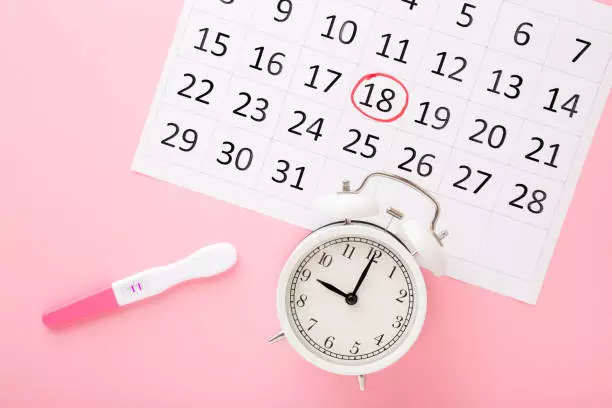
Pregnancy is an exciting but sometimes confusing time, full of physical and emotional changes. To help you navigate this adventure with greater serenity, a pregnancy calendar is an indispensable tool. This precise guide allows you to follow your baby’s progress and the changes in your body week by week. Let’s take a look at the different aspects of a pregnancy calendar.
A pregnancy calendar is a chart or application that details each stage of pregnancy, from conception to delivery. It is generally broken down into weeks or trimesters and provides information on the development of the foetus as well as the symptoms and changes that the mother-to-be may experience. This gives parents a better understanding of what is happening during each phase of their journey towards parenthood.
Here are the key elements included in a pregnancy calendar:
Using a pregnancy calendar can provide invaluable support. By tracking your baby’s weekly development and having access to detailed explanations of each stage of pregnancy, you can reduce your worries. All you need to do is check a few details to feel well informed and prepared.
This calendar also makes it easier to communicate with your doctor. For example, knowing the exact start and end dates of each trimester helps you plan your essential medical appointments. You’ll know when it’s time for certain tests or ultrasounds, so you can keep a close eye on your health and that of your baby.
There are various ways of using a pregnancy calendar. Digital versions such as mobile apps offer the flexibility of receiving automatic reminders for appointments and notifications about your baby’s stage of development.
On the other hand, a paper chart can be placed in a visible place in your home, providing a constant reminder of key events and periods in your pregnancy.
One of the most commonly used tools in a pregnancy calendar is the due date calculator. Based on the date of your last menstrual period, this tool estimates the probable date of your baby’s birth. Knowing this date will help you plan your maternity leave and prepare for your baby’s arrival.
During this trimester, many changes occur rapidly. Your baby’s heart starts beating as early as the fifth week, and its main organs begin to form. You may experience symptoms such as morning sickness, increased fatigue and mood swings.
Also known as the “golden trimester”, this is often the most enjoyable time of pregnancy. Nausea diminishes, your energy returns and your belly begins to round out more noticeably. This is also the time when you’ll be able to find out your baby’s sex at the morphologicalultrasound, generally carried out around the 20th week.
During this final trimester, you will feel more of your future baby’s weight. Your body is preparing forchildbirth and you may feel symptoms such as Braxton Hicks contractions. Preparing for the baby’s arrival then becomes the main focus, including planning the hospital stay and final shopping for the newborn.
Although pregnancy calendars are generally very reliable, it’s vital to remember that every pregnancy is unique. Dates and durations may vary slightly from one woman to another. The estimates provided by these calendars are based on general averages, so they do not replace personalised advice from your doctor.
A good pregnancy calendar should be able to adapt to specific changes in your condition. If your doctor gives you new instructions or if unforeseen complications arise, it will be necessary to readjust this schedule to correspond to your new situation.
Many mothers-to-be wonder what types of calculations should be included in their pregnancy calendar. As well as the due date calculator, you can include calculators to monitor your weight gain, plan for parental leave, or even anticipate certain maternity-related expenses.
Interpreting the various pregnancy symptoms can sometimes be stressful. The pregnancy calendar offers detailed explanations of common symptoms, helping you to distinguish between those that are normal and those that require immediate medical consultation.
